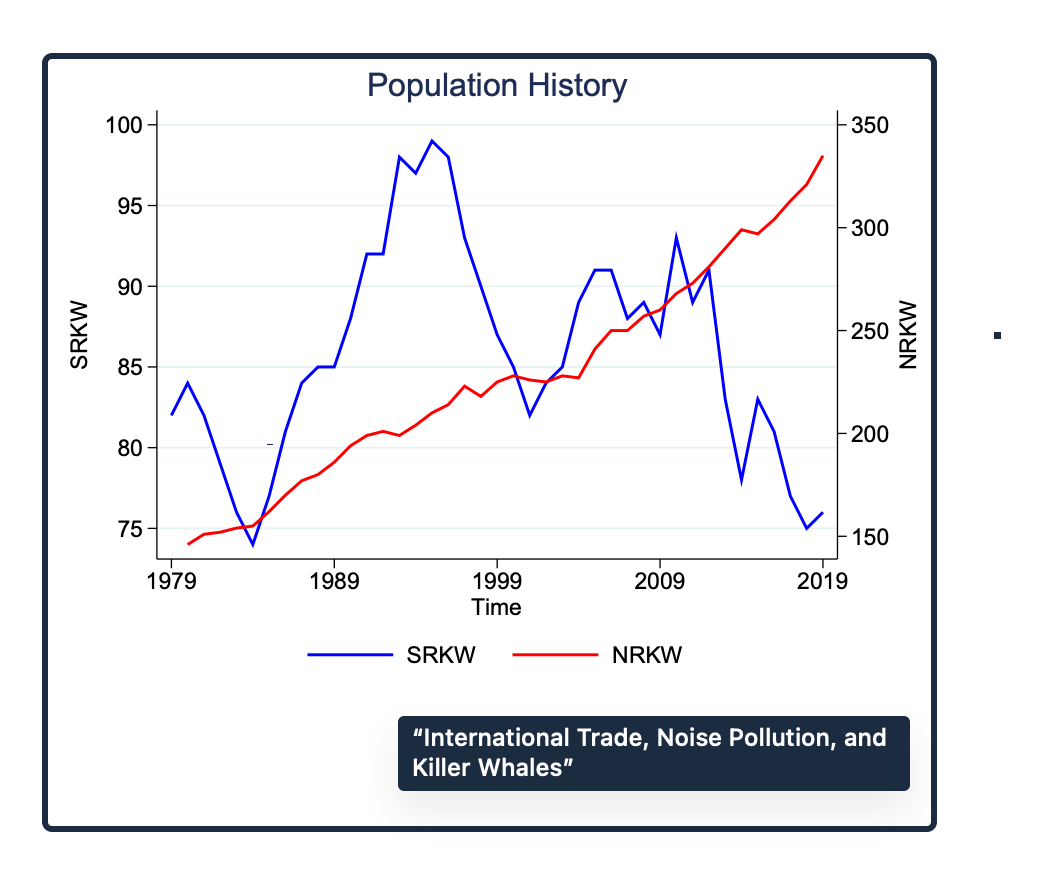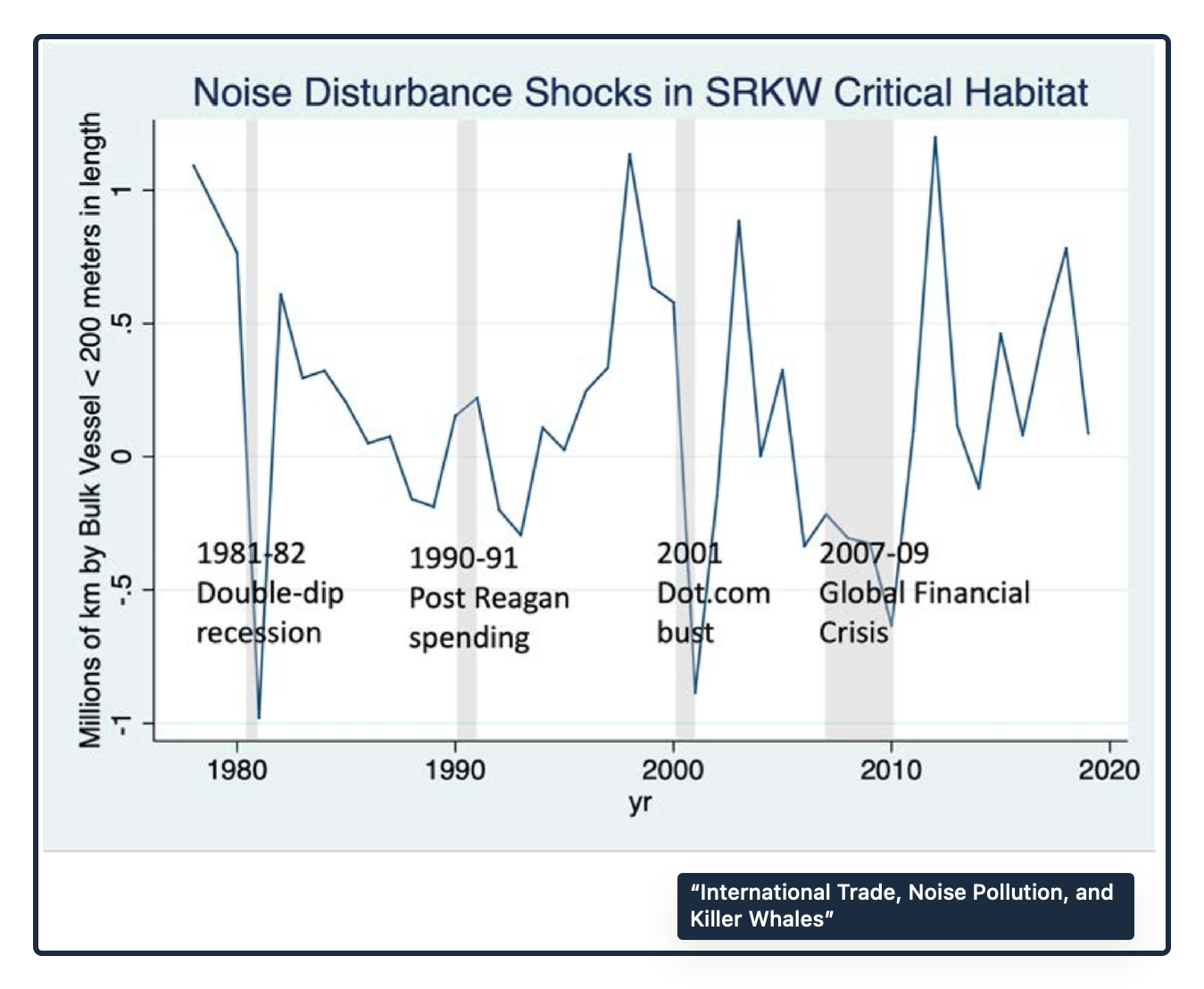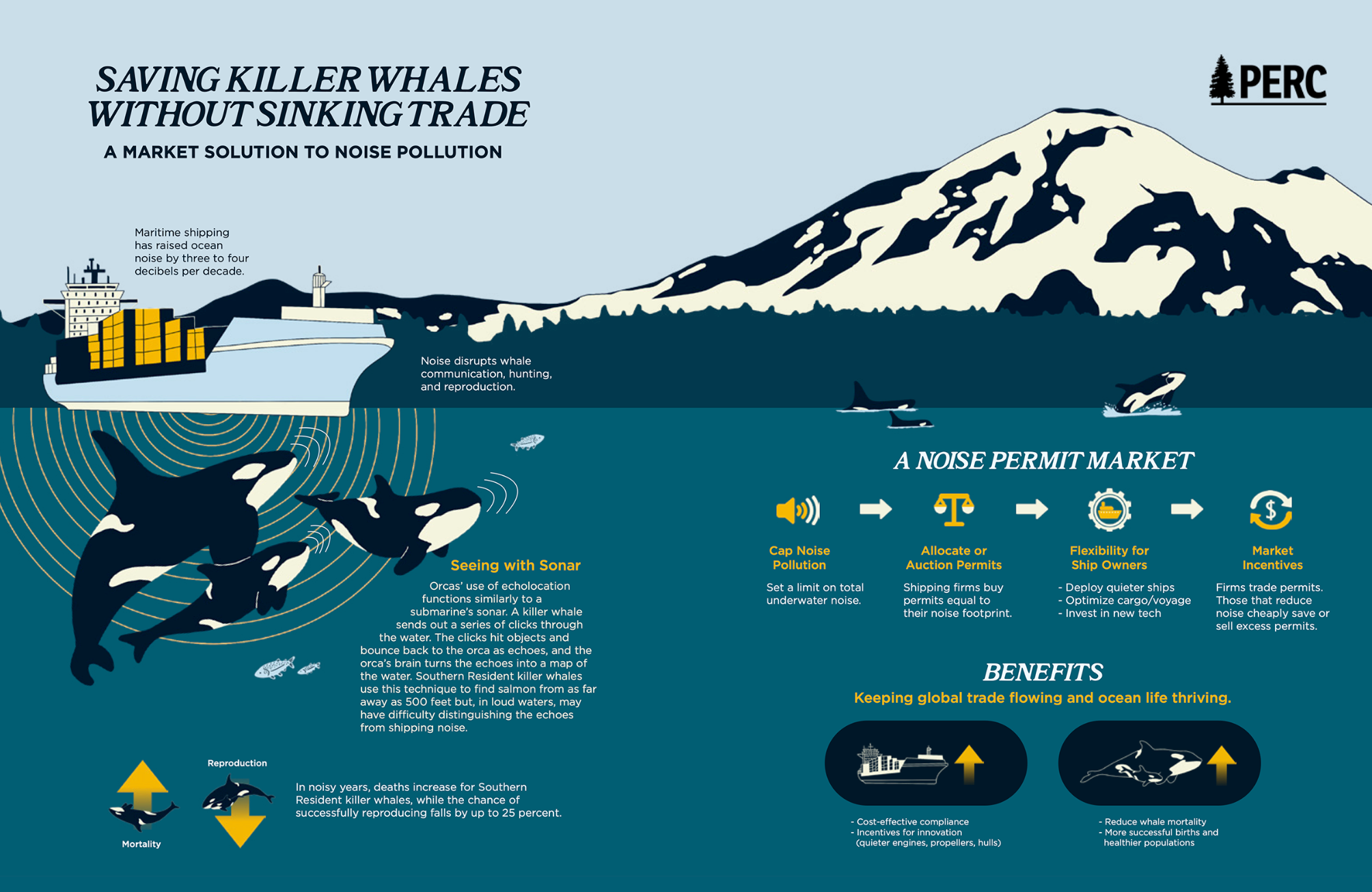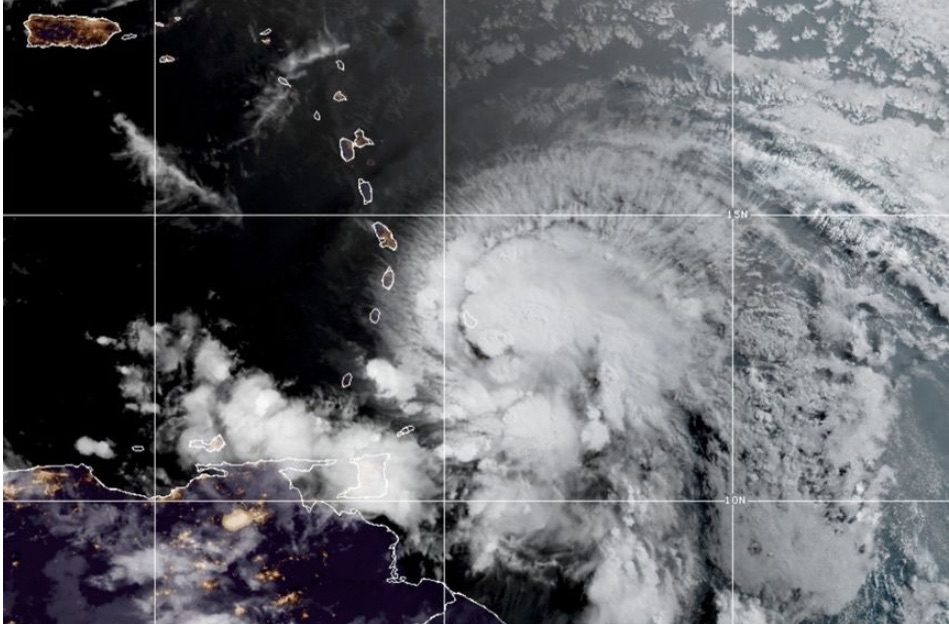
What Our Cows Are Wearing
October 6, 2025
Some Berry Large Spending
October 8, 2025Two seemingly disparate problems have similar solutions.
They relate to noisy ships and wasteful food distribution.
Noisy Ships and Food Waste
Noisy Ships
The cargo ships that carry the vast majority of world trade produce underwater noise. Because whales use sound to navigate, communicate, and hunt, noisy ships could affect their health. More precisely, worried about the Southern Resident Killer whale’s extinction, scientists have tried to prove the connection between sound and whale health.
Below, you can see the Southern Resident Killer whale’s population decline:

To confirm the cause, scientists first correlated noise fluctuation and economic activity:

They then used the data to demonstrate that noise increases killer whale mortality and diminishes birth rates.
The Solution
According to a recent paper, they just needed a permit system. Like all permit approaches, participants identify a maximum noise level, distribute permits, and then let incentives go to work when shippers buy and sell them.
Below, they describe the system:

Food Waste
The market also helped food banks with a distribution problem.
Feeding America, the not-for-profit that supports many thousands of meal programs, was sending pickles when pantries wanted oranges and potatoes they could not use. When, for example, Feeding America was told that a manufacturer had an extra truckload of mac and cheese, it contacted the food pantry that was #1 on its list. If that group said no, then it moved to last and #2 got the call. Feeling the pressure to say yes, the local people knew the parent group was afraid to refuse a manufacturer. The result was a slew of mismatches, wasted food, and unhappy beneficiaries.
The Solution
The solution was a market system with mock money called “shares.” Each day, after pantries got their “shares,” they could look online to see what food was available. Rather than depending on a call from the top, they knew what they needed. Receiving a load of pancakes, they went after some syrup.
Our Bottom Line: Market Power
Years ago, I had the opportunity to ask former Secretary of the Treasury Lawrence Summers a question. As he walked in one direction and I in the other, I waited for our paths to cross and then said that I taught economics and wondered what he thought was the most important idea my students could learn. Barely pausing, he said, “the power of the market,” and continued onward.
Reading about noisy ships and wasteful food pantries, I thought about “the power of the market” and how incentives created by supply and demand, could solve a vast array of problems.
My sources and more: Thanks to Timothy Taylor’s Conversable Economist for alerting me to the shipping article and these papers, here and here. From there, recalling our food bank post, we also returned to this article.
Please note that several of today’s sentences were in a past econlife post.
![econlifelogotrademarkedwebsitelogo[1]](/wp-content/uploads/2024/05/econlifelogotrademarkedwebsitelogo1.png#100878)




